8 Must-Watch Films About Economics That Will Change the Way You Think About Money
Do you think economics is dull and unapproachable? These films will prove you wrong. Through real-life events, sharp dialogue, and gripping storylines, they explore the power of money, greed, and ambition in ways that will leave you at the edge of your seat. The world of finance is filled with high-stakes decisions, moral dilemmas, and the potential for life-altering consequences and the films on this list capture those moments in all their dramatic glory.
Whether you're fascinated by the rise and fall of Wall Street tycoons or intrigued by the complexity of the 2008 financial crash, these films will not only entertain you but also make you think. Ready to see the hidden side of economics? Let’s dive into these 8 films that will change your perspective on wealth and power.
1 The Big Short (2015)
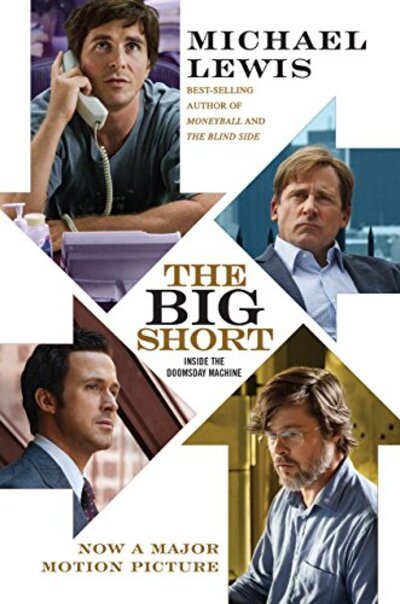
Directed by Adam McKay, The Big Short breaks down the complexities of the 2008 housing market crash in a way that is both informative and wildly entertaining. The film follows a group of outsiders who predicted the collapse and bet against the housing market, making a fortune in the process. What makes this film so compelling is how it uses humor and real-life financial disasters to explain complicated economic concepts. The cast, led by Christian Bale, Steve Carell, and Ryan Gosling, delivers performances that keep viewers engaged in what might otherwise be an overwhelming topic.
Why you should watch it: If you’ve ever wondered how the financial world can go so catastrophically wrong, this film will show you, while keeping you on the edge of your seat.
2 Margin Call (2011)
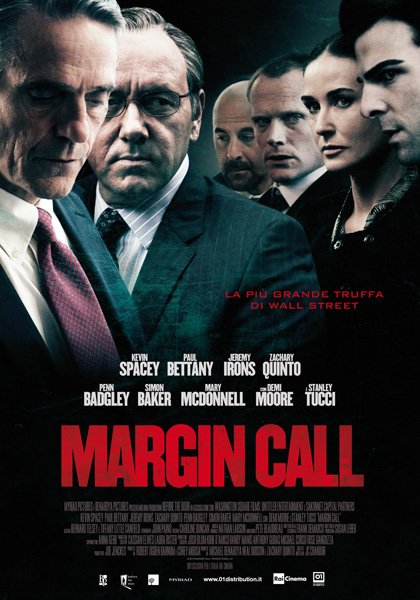
Taking place over a 24-hour period at an investment bank on the brink of collapse, Margin Call offers a gripping insider’s look at the decisions that sparked the 2008 financial crisis. The film, directed by J.C. Chandor, doesn’t just highlight the collapse of a firm it reveals the moral and ethical dilemmas faced by the people who knew disaster was coming. Featuring performances from Kevin Spacey, Jeremy Irons, and Stanley Tucci, the movie is a tense drama that focuses on how those in power react when the stakes are highest.
Why you should watch it: This film offers an intimate look at the human side of financial catastrophe the fear, greed, and moral choices made under pressure.
3 The Wolf of Wall Street (2013)
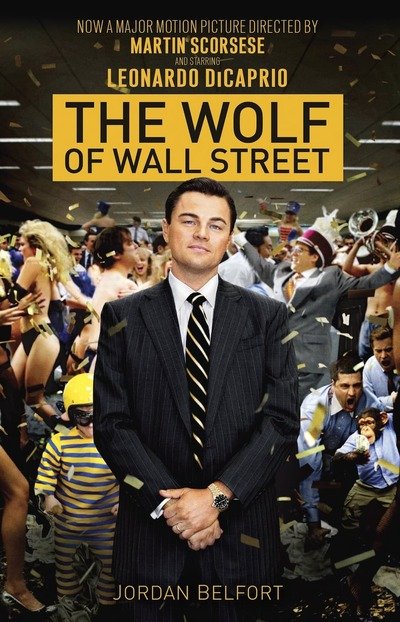
Based on the real-life story of Jordan Belfort, The Wolf of Wall Street dives into the world of stock market corruption and excess. Directed by Martin Scorsese, this film is a wild, no-holds-barred look at the excesses of Wall Street in the 1990s. Leonardo DiCaprio’s portrayal of Belfort, a stockbroker who manipulated the market and lived a life of luxury, is both hilarious and horrifying. The film shows how the lure of wealth can corrupt, and the lengths some will go to achieve it.
Why you should watch it: This film is a shocking and entertaining portrayal of the dark side of Wall Street’s greed and the reckless pursuit of wealth.
4. Wall Street (1987)
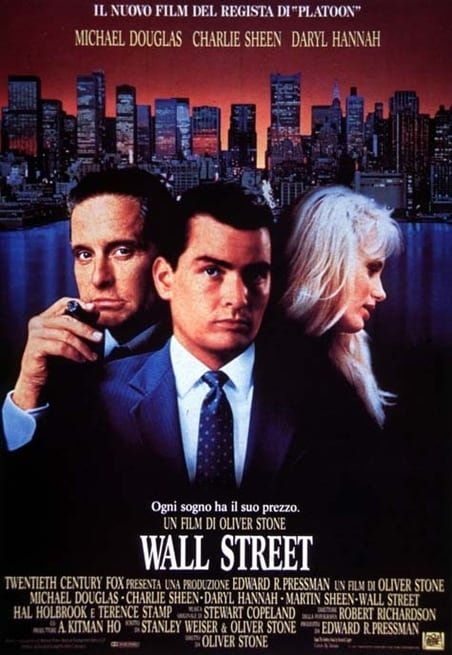
A timeless classic directed by Oliver Stone, Wall Street gives us one of cinema's most iconic characters: Gordon Gekko, played by Michael Douglas, whose famous line “Greed is good” has become legendary. The film follows Bud Fox (Charlie Sheen), a young stockbroker, as he gets swept up in the world of insider trading and corporate greed. Wall Street captures the culture of the 1980s financial world, where money and power reign supreme.
Why you should watch it: This film serves as both a cautionary tale and a time capsule of the financial boom and moral ambiguity of the 1980s.
5 Moneyball (2011)
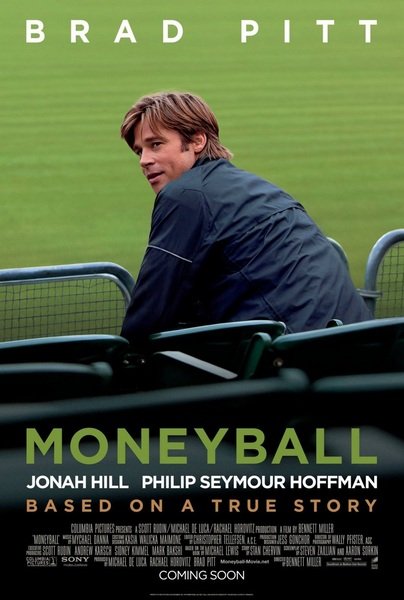
Though not strictly about economics, Moneyball offers a fascinating look at how data and statistics can revolutionize an industry. Directed by Bennett Miller and starring Brad Pitt as Oakland A's general manager Billy Beane, the film explores how Beane used data-driven decision-making to build a competitive baseball team on a limited budget. It’s a brilliant example of how thinking outside the box and challenging established norms can create new opportunities.
Why you should watch it: Moneyball proves that numbers, when used wisely, can challenge traditional systems and change the game — literally and figuratively.
6 Too Big to Fail (2011)
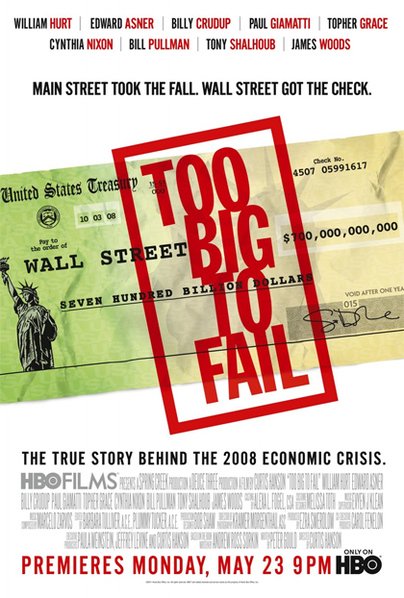
This HBO film takes you behind the closed doors of the U.S. government's response to the 2008 financial crisis. Directed by Curtis Hanson, Too Big to Fail is based on Andrew Ross Sorkin's book and gives a dramatic recounting of how top government officials and bankers tried to stop the collapse of the financial system. With a powerhouse cast that includes William Hurt as Treasury Secretary Henry Paulson, this film offers a detailed and personal view of the panic and decisions made during a financial disaster.
Why you should watch it: It gives you a sense of how interconnected the global financial system is and how even the most powerful people can be blindsided by events.
7 Inside Job (2010)
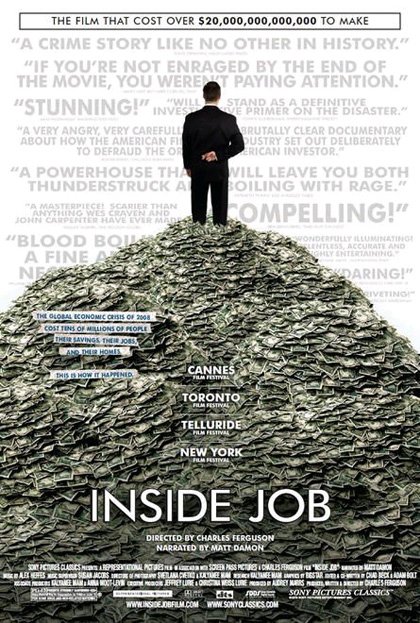
Inside Job is a documentary directed by Charles Ferguson that lays bare the causes of the 2008 financial meltdown. Narrated by Matt Damon, this Academy Award-winning film takes a step-by-step approach to explain the systemic corruption within the financial sector, showing how greed and regulatory failures led to a global catastrophe. It’s an eye-opening investigation into the forces that nearly brought the world economy to its knees.
Why you should watch it: Inside Job is a must-see for anyone who wants to understand the deeper roots of economic crises, making the case that they’re not just inevitable accidents but the result of deliberate actions by powerful interests.
8 The Banker (2020)
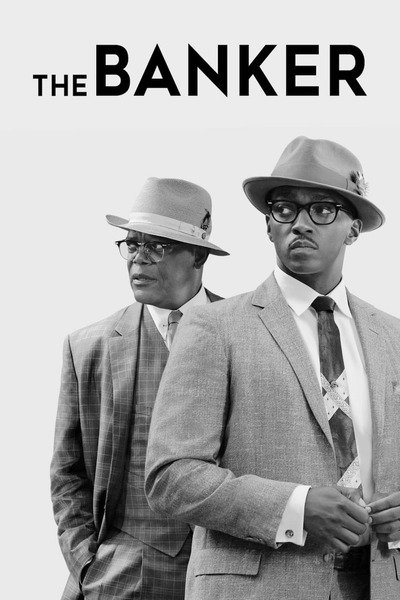
Set in the 1960s, The Banker tells the true story of two African-American entrepreneurs who hire a working-class white man to pose as the face of their business ventures as they purchase banks and provide loans to Black families in Texas. Starring Anthony Mackie and Samuel L. Jackson, this film sheds light on the intersection of finance, racial inequality, and ingenuity.
Why watch it: The Banker is an inspiring story about overcoming systemic obstacles in finance, and it encourages reflection on the role of financial institutions in promoting social justice.
Whether you're interested in learning about the moral dilemmas of those working in finance or want a deeper understanding of how economic decisions affect us all, these eight films are an essential watch. They bring the world of finance to life, mixing drama, real-world events, and insights into the complexities of our global economy. Watching them will leave you both entertained and much more informed about the forces that drive financial markets and perhaps, even more curious about how these systems can shape the world around us.